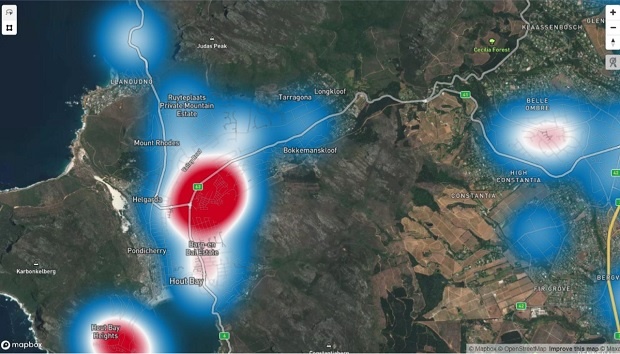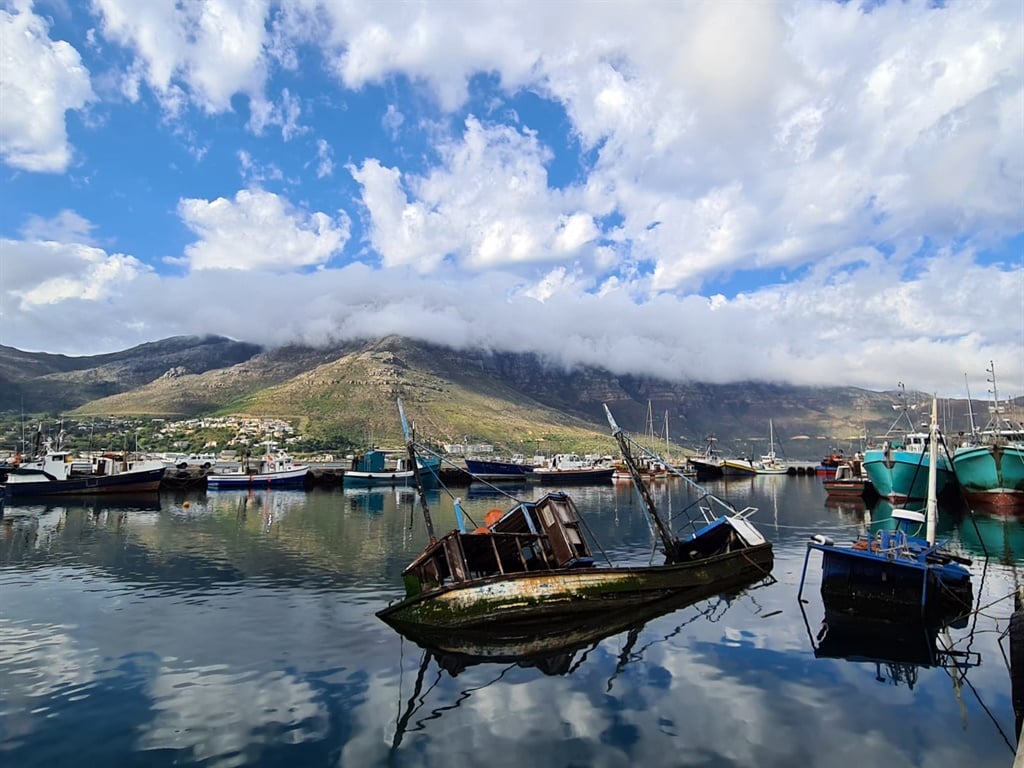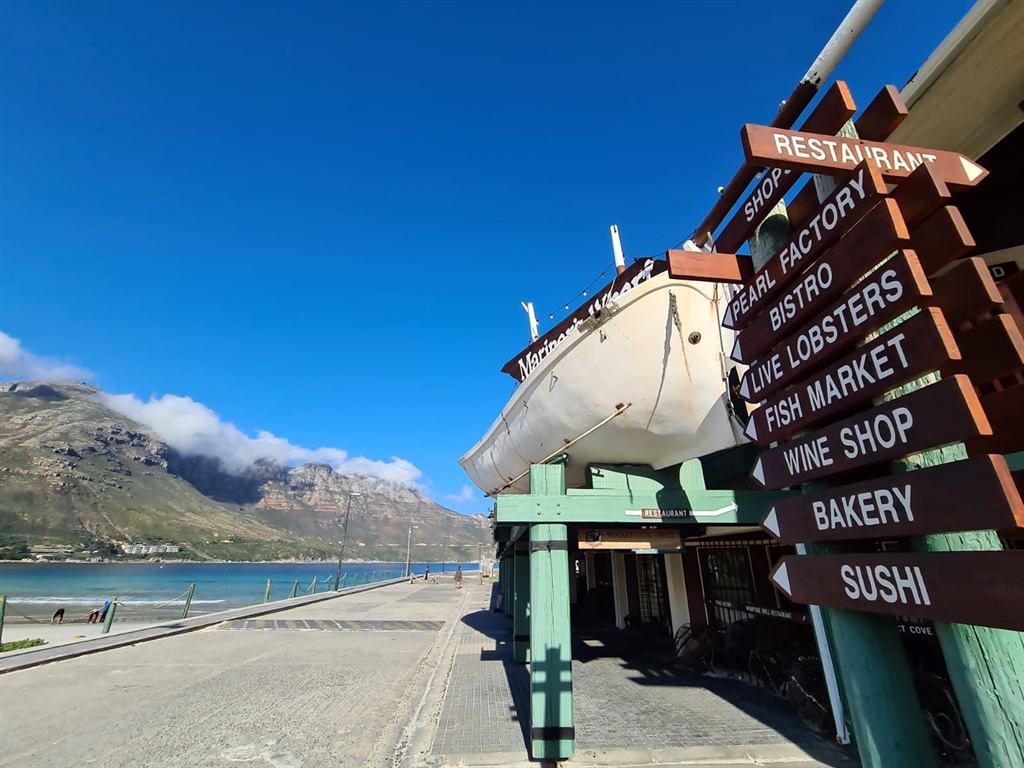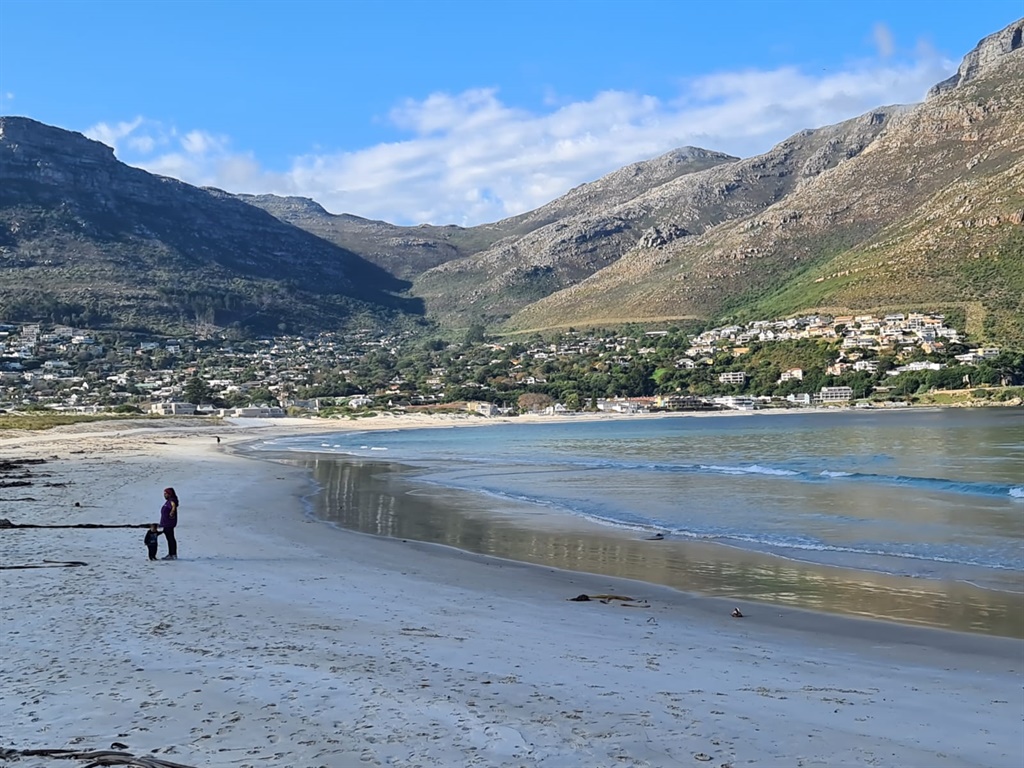- Hout Bay has been identified as one of five hotspots in Cape Town.
- Fishermen in the area explain how Covid-19 has impacted on their industry – and their lives.
- In Imizamo Yethu, a nearby informal settlement, people are going to bed without food.
When Jose de Barros sailed out to sea on February 3, there wasn’t a Covid-19 case in sight.
But when he stepped back onto dry land in Hout Bay, he walked back into one of South Africa’s viral hotspots. And he has been fearful ever since.
“When we left for Luderitz, there was no virus,” the fishing trawler owner explained, emerging from the bowels of his vessel at Hout Bay’s famous wharf.
“Now, it’s a big worry – especially for people like me, over 50. There have been quite a few skippers and crew who have become sick. I don’t think we’re going to fish again until October/November.”
The suburb of Hout Bay was identified by the Western Cape government last month as one of five hotspots in the City of Cape Town – and the numbers are growing.
WATCH | Tygerberg red zone: Food, fear and work in Covid-19 hotspots
Other hotspots include the Tygerberg district, Khayelitsha, Klipfontein, Western region – Du Noon – and Southern region – Hout Bay.



The Hout Bay hotspot.
Supplied
‘The whole supply chain is disrupted’
Out at sea, the protocols were no problem, De Barros explains.
“We screen twice a day, our safety officer asks continuous questions. The problem comes when someone tests positive – then we need to return to shore immediately.”
He said he’d rather play it safe.
INFOGRAPHICS | The extent of the Western Cape Covid-19 outbreak
“The whole fishing supply chain is disrupted,” fretted Joseph Fari, on a boat bobbing idle nearby. “We can catch the fish – but there’s no one to process them!
“We are fourth-generation fishermen,” he explained, taking great delight in orating his family’s history. “When we were ‘laaities’, we began by catching mussels and alikreukel (giant periwinkle), when we were six or seven. Then ‘klipvissies’ (rock fish). Our grandfathers were all fishermen – so we tried to be like them. From the beginning, we were trained in how to survive from the sea.”
But now the industry has gone quiet.
“It has affected us severely. Many of my family members work in the restaurants, and in the factories… now many of them have closed down.
“They are trying to make ends meet. But, to me, it’s not going to help. Because why? To change your livelihood in the blink of any eye is impossible.”
The hungry gulls’ cries are all that are heard on the dead-quiet quays.
But he had no personal concerns with the virus – primarily because of the peace he derived from smoking cannabis.
“To be honest, I’m not fearing Covid-19,” he grinned.
‘It’s enough for bread’
Eragfaan Davids, one of Hout Bay’s “seal-feeders”, at the touristy end of town, explained his game-play: “I get the guts of the fish, by the factories – and feed the seals, so they’ve also got a meal. And now-and-again, I also get a lucky strike – say 20, 30 (Rand) – and it’s enough for a bread and that, you know?
“Every day I’ve been here, since the beginning of lockdown. But everything’s ‘junk status now’ – your money is worth nothing, because to buy a cigarette is R10! For wine – or a bottle of brandy: 500 bucks! I don’t know what this government’s coming to.”
Namibian-born Ovambo man, Moses Hamutenya, spoke of life in Mandela Park, the Hout Bay suburb where infections have flared: “It’s very dangerous. You can run, but you can’t hide,” he said of life in the informal settlement.
He was particularly fearful of alcohol abuse.
“In the lockdown, there was no beer – everyone was safe. But now: When you drink beer, you don’t want to wear a mask anymore. If it carries on like this, everyone’s going to get Covid-19,” Hamutenya warned. “There are too many shebeens!”
He preferred being at sea, where it was safer. But work was now sporadic – even as a humble deck-hand.



The Hout Bay harbour is eerily quiet during the Covid-19 pandemic. (Murray Williams/News24)
News24



The Hout Bay harbour is eerily quiet during the Covid-19 pandemic. (Murray Williams/News24)
News24



Hout Bay beach. (Murray Williams/News24)
News24
‘People are going to bed without food’
At the entrance to Imizamo Yethu, Keston Kanyama stood up to greet us, and struggled to pull on his mask.
“I’m like Ramaphosa now!” the Malawian laughed – taking a friendly shot at the South African president’s infamous fumble with his own face-covering.
“We have coped very well with Covid pandemic. In the beginning, people were not listening to what government was trying to teach us – about the masks, and 1.5m distance. Now there is a little bit of a change… we are learning to protect one another.”
But his business had suffered – with not a single tourist sighted in months.
“People are going to bed without food. As you can see, there are a lot of people in our community who need help. Every day, the soup kitchens are going in. The organisations are trying. But we need these every day, every day,” Kanyama said.
He had rigorous safety protocols at his small stall, and he was strict with his clients – and admitted regularly handing out food for free.
“Together we can fight this!” he urged.
‘It was hard for the children’
High above the harbour, on Chapman’s Peak drive, cyclist Mark Berton-Moore gulped down grateful lung-fulls of fresh air, having just summitted one of the world’s most famous scenic coastal drives.
“It was quite chaotic, in the morning, but everyone seems to be really enjoying it. It was quite an amazing feeling… there was such a vibe, dogs and kids and kids on bikes,” he said of the first days of the exercise window.
“When you’re going uphill, it’s quite a thing to suck air through a mask,” he admitted.
But most abided by the rules.
Nearby, little Rooh Baderoon, aged just one, kicked his first soccer ball during an outing with his mom.
“This is the first outing since the start of the lockdown!” explained mom Tamera. “There were times when it was very hard for the children. We have a big back yard, with swings, a trampoline – but it wasn’t enough. Children need human interaction!”
Hout Bay has always been a family favourite.
“Now we can’t even sit at the restaurants anymore.” But she added quickly: “I suppose at least we can get a take-out.”
Her tiny-tot squealed with delight – oblivious to Hout Bay’s status as one of South Africa’s most virulent viral districts.

